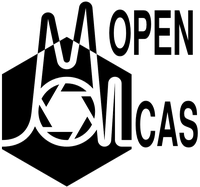Invited Speakers
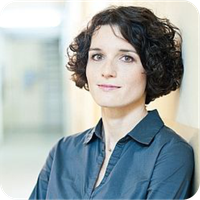
Katarzyna Pernal
Institute of Physics, Lodz University of Technology, Poland
Graduated in Chemistry in 1998; PhD degree in Chemistry from Florida State University in 2002. A post-doctoral researcher at Vrije Universiteit Amsterdam, 2004-2007. Full Professor in Physics at Lodz University of Technology.
Recipient of the medal of the International Academy of Quantum Molecular Science (IAQMS) in 2015. Topic editor in The Journal of Physical Chemistry Letters (ACS); editorial board member of Scientific Reports; editorial advisory board member of Journal of Chemical Theory and Computation (ACS) and International Journal of Quantum Chemistry (Wiley).
Main research interests: development of electronic structure methods based on electron density and reduced density matrices for molecules; investigation of spin-states of strongly correlated molecular systems, molecular interactions in out-of-equilibrium and electronically excited complexes.
Invited talk title: An accurate and efficient adiabatic connection method with Cholesky decomposition for dynamic correlation energy of strongly correlated systems. Abstract available here.
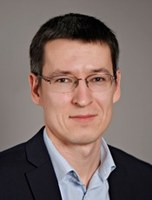
Artur F. Izmaylov
Department of Physical and Environmental Sciences, University of Toronto, Canada
Artur Izmaylov is a Professor at the Departments of Chemistry and Physical and Environmental Sciences of the University of Toronto. He received his PhD from Rice University in 2008, where he created several novel methods of density functional theory for accurate description of electronic properties of solids. After a joint postdoctoral appointment at Yale University and Gaussian Inc., in 2012 he joined University of Toronto.
The main efforts of his group are directed toward developing simulation techniques for quantum and classical computers to solve quantum molecular dynamics and electronic structure problems. He is a recipient of several national and international awards: Sloan Fellowship (2015), Ontario Early Researcher Award (2017), Tom Ziegler Award (2019), Journal of Physical Chemistry Lectureship Award (2019), and Google Quantum Research Award (2019).
More information is available on Izmaylov’s group website Izmaylov Research Group (utoronto.ca)
Invited talk title: Quantum Computing for Quantum Chemistry: How to bring quantum advantage sooner.
Abstract available here.
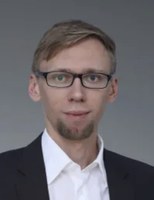
Pavlo O. Dral
College of Chemistry and Chemical Engineering, Xiamen University, China
Pavlo O. Dral is a Full Professor at Xiamen University and an Assistant Dean in international admissions matters, Department of Chemistry, College of Chemistry and Chemical Engineering, Xiamen University. His research is focused on accelerating and improving quantum chemistry with artificial intelligence/machine learning.
Pavlo Dral is a founder of the MLatom package for atomistic machine learning simulations and a co-founder of the Xiamen Atomistic Computing Suite. In 2021, he was awarded an Outstanding Youth (Overseas) by the National Natural Science Foundation of China. Pavlo Dral did his PhD with Prof. Tim Clark at the University of Erlangen–Nuremberg in 2010–2013, postdoc with Prof. Walter Thiel at the Max Planck Institute for Coal Research in 2013–2019.
More information is available on Dral’s group website dr-dral.com.
Invited talk title: Making quantum chemistry more accessible with machine learning.
Abstract available here.
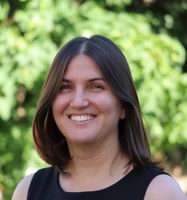
Ksenia Bravaya
Department of Chemistry, Boston University, MA, USA
Ksenia Bravaya received her M.Sc. in Chemistry (2005, with honors) and Ph.D. in Theoretical Chemistry (2008) from Moscow State University (Russia). She completed her postdoctoral training with Prof. Anna Krylov at the University of Southern California (2013).
Currently, Ksenia Bravaya is an Associate Professor of Chemistry at Boston University. Her research interests in theoretical chemistry cover a wide range of topics associated with electron-mediated processes, from reactive electron scattering in the gas phase to charge transport in biological macromolecules.
More information is available on Bravaya’s group website: https://people.bu.edu/kbravgrp/
Invited talk title: Multireference methods for electronic resonances.
Abstract available here.
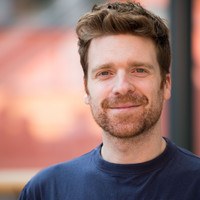
Mickael Delcey
Theoretical Chemistry and Biology, KTH Royal Institute of Technology, Sweden
Mickael Delcey is a researcher at the Departments of Chemistry of the University of Lund, Sweden. He received his PhD from Uppsala University in 2015, under the supervision of Roland Lindh where he developed CASSCF gradients and non-adiabatic couplings using the Cholesky Decomposition and worked on the application of multiconfigurational methods to X-ray spectroscopy.
He then joined the group of Martin Head-Gordon in Berkeley before going back to Uppsala with Marcus Lundberg, where he continued a mix of method developments and applications for X-ray spectroscopy.
In 2021, he started his own independent group in KTH, Royal Institute of Stockholm and now since this January in Lund University. The main efforts of his group are directed toward developing multiconfigurational methods, especially for spectroscopy and photochemistry. He is the main developer of MultiPsi, a massively parallel multiconfigurational program.
More information is available on Mickael's page: https://www.teokem.lu.se/people/researchers/mickael-delcey/
Invited talk title: Variational optimization of multiconfigurational pair-density functional theory.
Abstract available here.
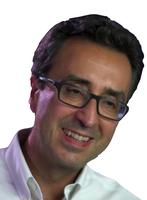
Giulio Cerullo
Department of Physics, Politecnico di Milano, Italy
Giulio Cerullo is a Full Professor with the Physics Department, Politecnico di Milano, where he leads the Ultrafast Optical Spectroscopy laboratory. Prof. Cerullo’s research concerns the generation and manipulation of ultrashort light pulses and their application to the study of ultrafast processes in molecules, nanostructures and two-dimensional materials (graphene, transition metal dichalcogenides). Additional research topics are the applications of ultrafast lasers to coherent Raman microscopy and micro/nanostructuring.
He has published more than 450 papers which have received more than 28000 citations (H-index: 84, Scopus). He is a Fellow of the Optical Society of America, of the European Physical Society and of the Accademia dei Lincei and past Chair of the Quantum Electronics and Optics Division of the European Physical Society. He is Associate Editor of Science Advances and on the Editorial Advisory Board of the journals Journal of Physical Chemistry, Laser&Photonics Reviews, Scientific Reports, Chemical Physics, Journal of Raman spectroscopy, Ultrafast Science. He has been General Chair of the conferences CLEO/Europe 2017, Ultrafast Phenomena 2018 and the International Conference on Raman Spectroscopy 2022.
Invited talk title: Real-time observation of conical intersection in biomolecules.
Abstract available here.
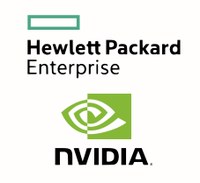
Piero Altoè - Paolo Masera
HPE & NVIDIA
Piero Altoè
Dr. Piero Altoè graduated in Chemistry in 2002 at the University of Bologna, and then he obtained a PhD in Chemical Sciences in 2007. During his PhD period, he worked in the computational chemistry field, developing a chemical software within a combined quantum mechanical/molecular mechanical (QM/MM) framework to study excited states in biological compounds. After his PhD, Piero worked as a post-doc until 2010, expanding the development of the QM/MM software, named COBRAMM suite.
In the period 2008-2010, in parallel with his research activity, he held the role of consultant for E4 Computer Engineering, an Emilian company that deals with assembling supercomputers for large computing centers and companies. In 2010, Dr. Altoè definitively left research to devote himself to commercial activity in the High-Performance Computing field at E4 company, where he worked until 2016 covering various roles, the last of which was Marketing Business Development Manager.
Finally, in 2016 he was hired at NVIDIA as Senior Business Development manager in the Scientific Computing area, oriented to large European research centers and universities. Currently Piero is Developer Relationship for the Energy sector at NVIDIA.
Paolo Masera
Currently HPC & AI Sales Specialist at HPE in Italy, I worked 22 years in Altair. I am working in HCP since 2000, I started as Sys Admin for CAE engineers and then for 20 years in Sales for Southern and Eastern Europe in the Enterprise Computing division, followed relevant big projects in Public and Private Sector.
I live in Asti (knew for good food and wine) and work in HPE Italy HQ in Cernusco sul Naviglio (MI), I am part of the HPE HPC & AI EMEA Team.
Invited talk title: Acceleration on GPU of quantum chemistry applications.
Abstract available here.
